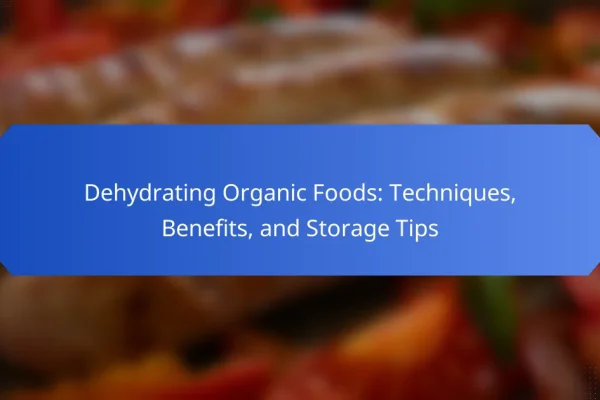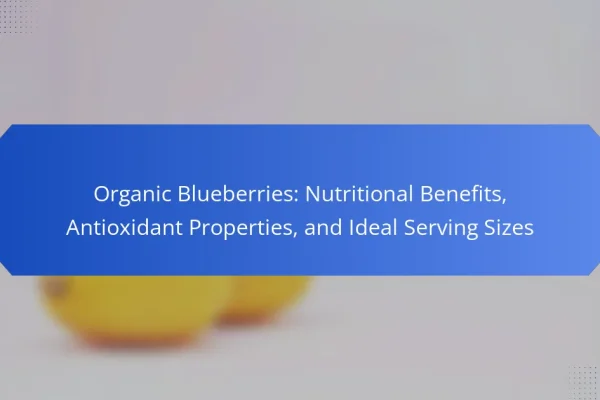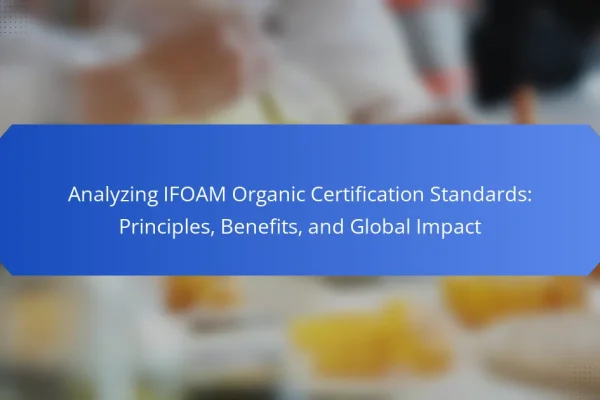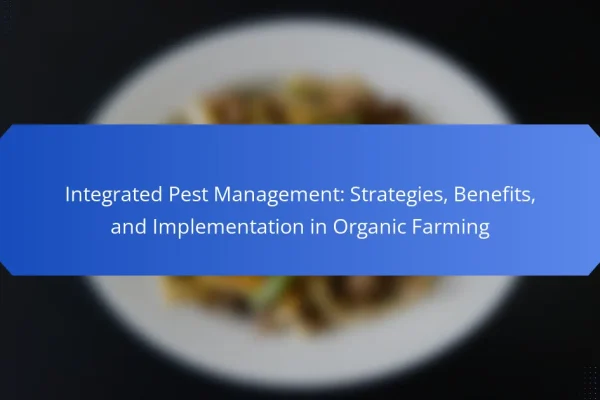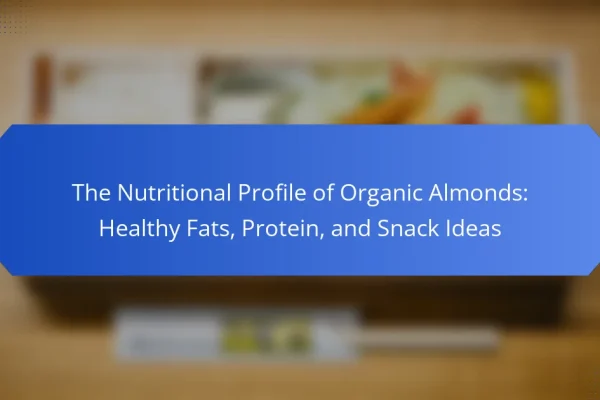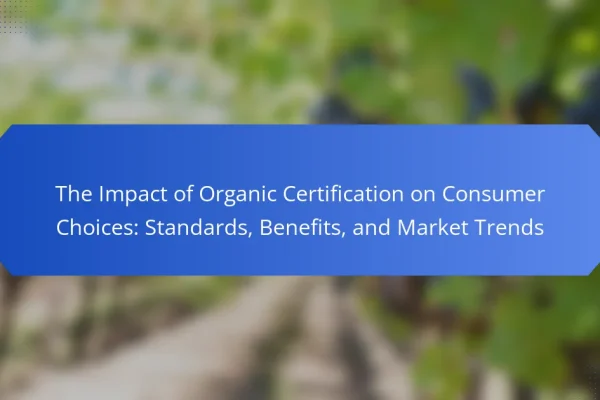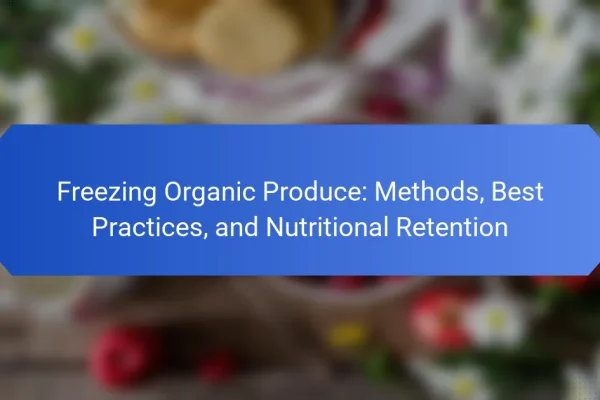
Freezing Organic Produce: Methods, Best Practices, and Nutritional Retention
Freezing organic produce is a preservation method that involves lowering the temperature of fruits and vegetables to below freezing, which helps maintain their quality, flavor, and nutritional value. This article covers the best practices for freezing organic produce, including selecting fresh items, washing, and blanching vegetables to enhance nutrient retention. It highlights the importance of…


